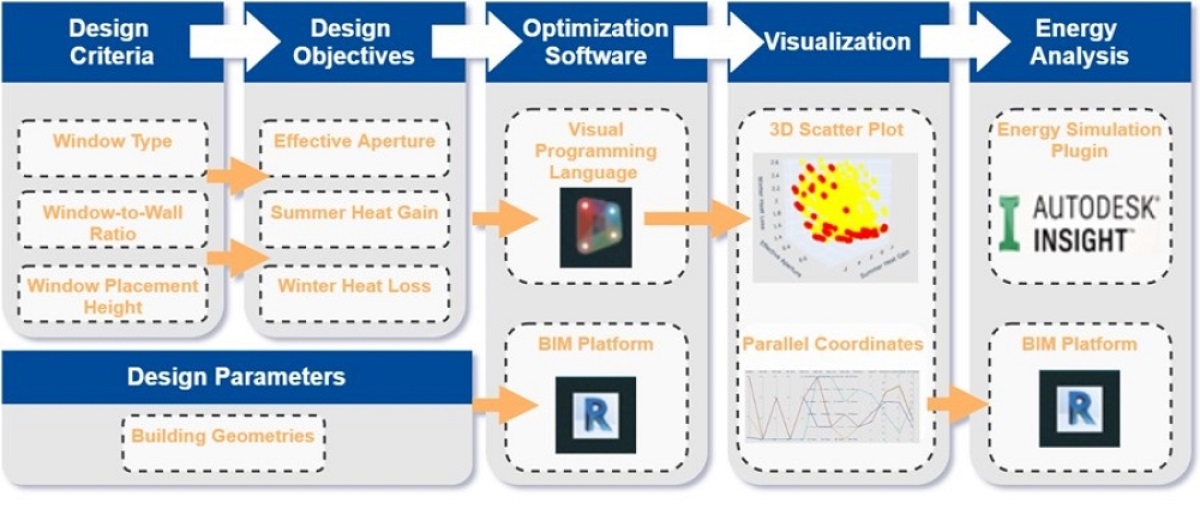Windows account for a significant proportion of the total energy lost in buildings. The interaction of window type, Window-to-Wall Ratio (WWR) scheduled and window placement height would influence the natural lighting and heat transfer through windows. This is a pressing issue for non-tropical regions considering their high emissions and distinct climatic characteristics. A limitation exists in the adoption of common simulation-based optimisation approaches in the literature, which are hardly accessible to practitioners. This article develops a numerical-based window design optimisation model using a common Building Information Modelling (BIM) platform adopted throughout the industry, focusing on non-tropical regions of Australia. Three objective functions are proposed; the first objective is to maximize the available daylight, and the other two emphasize on the undesirable heat transfer through windows in summer and winter respectively. The developed model is tested on a case study located in Sydney, Australia, and a set of Pareto-optimum solutions is obtained. Through the use of the proposed model, energy savings of up to 16.43% are achieved. Key findings on the case example indicate that leveraging winter heat gain to reduce annual energy consumption should not be the top priority when designing windows for Sydney.

